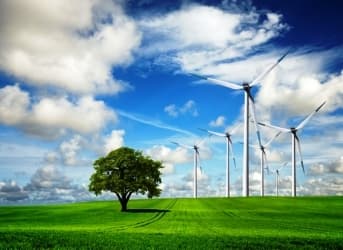Amidst the on-going roiling European Union debate over the organization’s crisis, politicians in Brussels have been scrambling to construct a fiscal policy that will shore up the organization’s common currency, the Euro.
But the on-going hardball fiscal discussions have laid bare the fact that, quite aside from a common financial policy, the EU suffers from a number of sovereign disconnects as well, and one of the most notable of these is energy policy.
In Spain, the government is preparing to raise taxes on renewable energy generation projects along with nuclear power as an element in the government’s broad energy reform program to curtail the nation’s deficits, according to government sources.
Renewable energy sources will reportedly be hit hard, by up to $1.1 billion annually, with the country’s nascent solar technologies likely to bear the brunt.
At the figurative and literal end of the EU pole, Denmark is going full bore to reduce its dependence on fossil fuels, seeking to reduce the nation’s dependency on them by 33 percent by 2020 and to achieve complete independence from hydrocarbon fossil fuels three decades later, by 2050.
Say who? Scandinavian environmental tree-huggers?
No - the Danish Ministry of Climate, Energy and Building, in its “Energy Strategy 2050” report.
Denmark, as one of Scandinavia’s most prosperous countries, currently has deeper pockets than fiscally strapped Spain, but the issue here stripped of political flummery is one of commitment.
Just as Germany in the wake of the 11 March 2011 Fukushima nuclear catastrophe decided to shutter its 19 online nuclear power plants (NPPs), so Copenhagen has made a political commitment to wean itself off a hydrocarbon-based energy economy.
The “Energy Strategy 2050” contains initial policies and initiatives intended to reduce the country’s reliance on fossil fuel consumption 33 percent by 2020 before achieving complete independence from fossil fuels three decades later. One of the core elements in accomplishing this is an increased reliance on wind power, as within the next eight years numerous new wind projects, including offshore wind are scheduled to come online, bringing the total wind power contribution to Denmark’s electric supply up to 40 percent.
The transition to renewable power from fossil fuels will not be cheap. Denmark’s Minister for Climate and Energy Lykke Friis nevertheless called the government’s commitment to renewable energy “economically responsible,” telling journalists, “No one is saying that carrying out major investments in energy efficiency and expanding our use of renewable energy is going to be free. But the alternative: Continued dependence on fossil fuels will, as all signs indicate, only become more expensive in the years to come. Converting to renewable energy will shield Denmark from the effects of increasing energy prices.”
The most interesting part of the Danish government’s commitment to renewable energy?
Denmark’s on-going investment in wind turbines and other forms of renewable energy is in stark contrast with neighbouring Sweden, which is expanding its energy commitment to nuclear power with Stockholm’s decision in principle to grant permission to build 10 new NPPs. The Danish Energy Association has expressed concerns that the Swedish decision to upgrade its nuclear commitment could "smash the economics of renewable energy."
Given that Sweden and Denmark have an interconnected power grid, cheap Swedish NPP electricity could depress electricity prices.
ADVERTISEMENT
Friis could not say whether the Swedish nuclear power may create a need for more state aid for Denmark’s renewable energy plan, saying only, “We have a vision for Denmark to be free of fossil fuels, and then we see if we have an energy system that is adapted to make it profitable.”
It will be fascinating to see which national system commitment prevails, especially as five decades ago nuclear energy was also promoted as a panacea to reliance on fossils fuels. Given that both Sweden and Denmark are prosperous nations, the final outcome, suffused with cash, is unlikely to be clear for some years – in which case, potential new developments at Fukushima may well render the debate moot, as so far, wind power’s environmental impact currently seems to be limited to bird strikes, while crippled NPPs trail longer-term environmental consequences in their wake.
By. John C.K. Daly of Oilprice.com


















